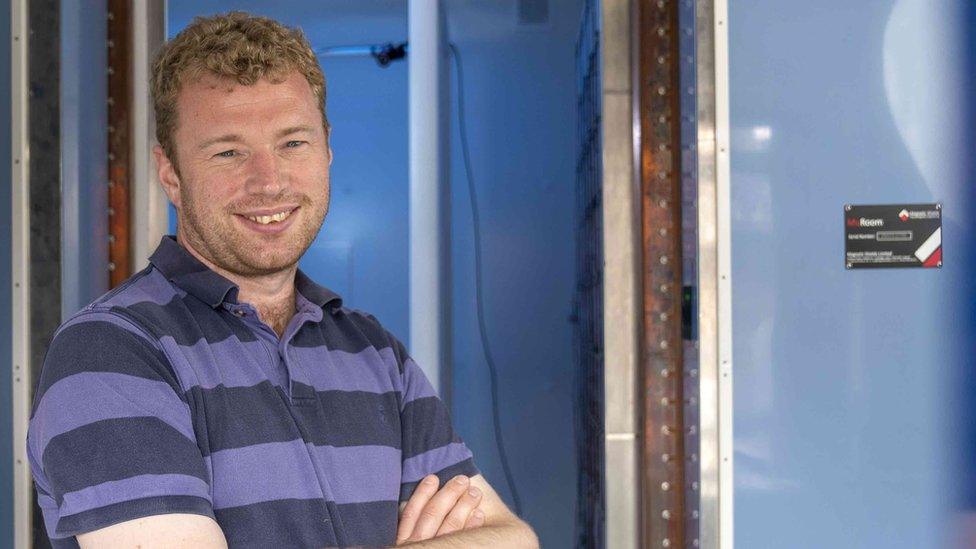Nottingham professor wins £100,000 award for wearable brain scanner
- Published
The brain scanner allows patients to move while being scanned
A scientist who helped invent a new brain scanner that can be worn on the head has been recognised for his work.
Prof Matt Brookes, a physicist from the University of Nottingham, has received a physical sciences and engineering laureate award worth £100,000.
Prof Brookes described the award - from the Blavatnik Family Foundation and the New York Academy of Sciences - as a "huge honour".
The academy's president said investment in science was "critical".
'Back of an envelope'
The brain scanner allows patients to move while being scanned.
The device records the tiny magnetic fields generated by the brain.
Researchers said it could revolutionise brain imaging, pinpointing the part of the brain responsible for activities like nodding, drinking tea and playing bat and ball.
The system is now being installed in clinical settings with collaborations currently under way with national charity Young Epilepsy and Sick Kids in Toronto.

Prof Brookes said he had watched the idea develop "from a few equations on the back of an envelope"
Prof Brookes said the wearable scanners had been under development for six years.
"To watch [them] grow, from a few equations on the back of an envelope, to a real, commercialised, brain imaging device has been truly wonderful," he said.
"This development has been made possible by an incredible team of scientists, both here in Nottingham and our many collaborators.
"To have our work recognised in this way is a massive achievement.
"It's a huge honour to have been recognised by such a prestigious award."
"The remarkable scientific talent and research in the UK grows stronger every year," said Sir Leonard Blavatnik, head of the Blavatnik Family Foundation.
"The brilliant, innovative work for which this year's laureates and finalists are recognised and honoured improves our world for the better."
Prof Nicholas B. Dirks, president and CEO of the New York Academy of Sciences, said: "Society cannot surmount world crises like the COVID pandemic without science.
"It is critical that we continue to invest in science and these young, trailblazing scientists who have the energy, optimism, and brilliance to continue developing scientific solutions benefitting millions, even billions, of people."

Follow BBC East Midlands on Facebook, external,Twitter, external, or Instagram, external. Send your story ideas to eastmidsnews@bbc.co.uk, external.
Related topics
- Published21 March 2018